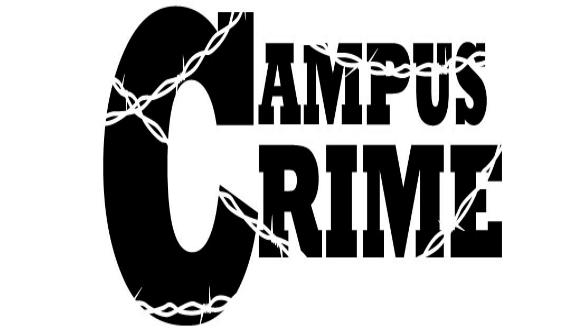THE NUMBER OF forcible rapes committed on the University of Michigan’s campus and/or reported to the University’s police dropped from a high of 75 in 2005 to a low of 8 in 2010.
Between 2011 and 2012, however, the number of forcible rapes reported more than doubled, rising from 15 in 2011 to 35 in 2012. Rapes committed in on campus residence halls, and reported, rose from 4 in 2011 to 10 to 2012.
Incidents of sexual assault with an object increased, as well, during the same time period. In 2006, when the number of forcible rapes was at its highest reported level, there were no reported incidents of sexual assault with an object.
According to crime statistics provided by the University of Michigan to the FBI, between 2011 and 2012 incidents of forcible fondling, which is defined as “The touching of the private body parts of another person for the purpose of sexual gratification, forcibly and/or against that person’s will,” tripled.
The Ann Arbor Police Department reported 35 forcible rapes in 2012 and 36 forcible rapes in 2011, according to the FBI’s Uniform Crime Statistics.
There are 68,000 students, administrative and academic staff on the University of Michigan campus.
Colleges across the country are under intense pressure from federal officials to make sure the crime is not under-reported on campuses and that officials do not retaliate against sexual assault survivors. The University of North Carolina, for instance, is facing a third federal investigation into how university officials handled sexual assault cases. In all, twenty-three schools are currently under investigation for discrimination related to sexual assault.
How effective are U.S. college administrators in preventing the crime of rape on their campuses? The CDC reports that 19 percent of undergraduate women experienced “attempted or completed sexual assault since entering college.”
This means that college is one of the most dangerous places for women. One in four women is a victim of sexual assault while in college. Yet the Department of Justice estimates that fewer than five percent of completed and attempted rapes are reported to law enforcement.
College administrators have been caught being equally as inept at handing rape allegations as they have been in preventing the crime from occurring on their campuses. Administrators often deal with rape allegations in ways that are at best insensitive and at worst active attempts to cover up brutal crimes.
“Sexual activity that is later regretted or deemed to have lacked consent.” Amanda Hess dug up this horrible euphemism for rape written into a safety manual for the University of Virginia in 2010.
“Rape is like football.” When Annie E. Clark, a student at the University of North Carolina, tried to report her rape, the administrator reportedly said to her, “Well… rape is like football, if you look back on the game, and you’re the quarterback, Annie… is there anything you would have done differently?”
“Educational sanctions.” Occidental College is under fire for responding to rapes on campus by treating the rapist as if he simply misunderstood that you aren’t supposed to violently sexually assault someone. One rapist was allowed to come back after writing a five-page book report.
A sexual assault prevention group is launching a college-themed guide for consensual sexual activity, hoping to inspire students to implement programs on their own campuses that will help encourage “the culture of consent.” The group behind the magazine is FORCE: Upsetting Rape Culture, the same feminist activists who recently played an elaborate prank on Playboy Magazine.
It appeared as though Playboy had released a “guide to a consensual good time,” choosing to emphasize sexual assault prevention in place of its traditional annual ranking of the country’s best party schools. But it was quickly revealed to be a fake — a parody site created by FORCE to get the Internet talking about consent on college campuses. To carry out the campaign, FORCE partnered with college activists who were in on the joke and who helped spread the fake guide among their peers.
FORCE says the reaction to the Playboy prank was so positive that it was clear students wanted real consent-themed materials. Not realizing it was a prank, hundreds of people praised Playboy in the comment section of the fake site, writing “Thank you” and “About time.” “The internet saw way more enthusiasm for the spoof ‘Ultimate Guide for a Consensual Good Time’ than for Playboy’s actual top party school list,” the group notes in a press release.
So the FORCE activists delivered. The 21-page action pack takes a similar tact as the fake Playboy guide did — colorful graphics, step-by-step guides, and a casual tone. For instance, college students can take a Cosmo-style quiz to assess how well their campus deals with issues of consent, and their schools will end up falling into categories like “Preaching to the choir,” “Consent is nice in theory, but gets lost in practice,” or “My school is a nightmare.”
In September 2013, the University of Michigan implemented a new policy regarding student sexual misconduct.
E. Royster Harper, vice president for student affairs told the Michigan Record, “As a university community that honors the values of civility, dignity, diversity, education, equality, freedom, honesty and safety, this policy is very clear on the point that Michigan is firmly committed to maintaining a campus environment free from sexual harassment and sexual assault.”

